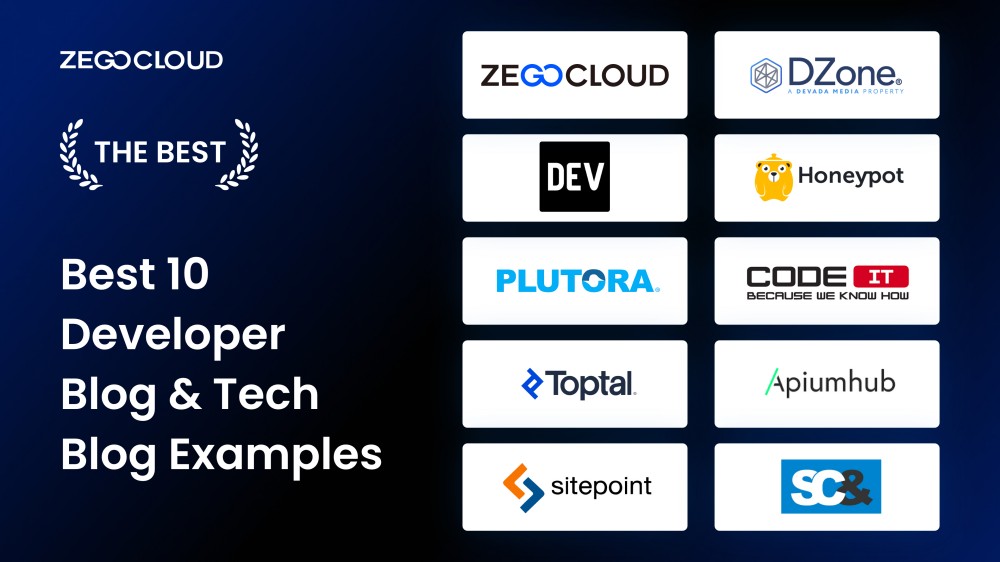The Development of the Best tech blog: A Journey Through Tech History and Future Trends
The Development of the Best tech blog: A Journey Through Tech History and Future Trends
Blog Article
Exactly How Blockchain Technology Is Revolutionizing Information Protection
Blockchain modern technology is essentially altering the landscape of data security by introducing a decentralized framework that guarantees enhanced transparency and durability. Unlike typical systems, which rely upon central information repositories, blockchain distributes information throughout a network, minimizing vulnerabilities and solitary factors of failing. Making use of innovative cryptographic techniques ensures that data remains tamper-proof, promoting depend on among users and stakeholders. As industries quickly adjust to this modern technology, inquiries emerge concerning its broader impact and prospective obstacles. What ramifications does this shift hold for future data defense strategies and regulatory structures? The answers might amaze you (Best tech blog).
The Essentials of Blockchain
Blockchain technology, an innovative idea in electronic data monitoring, fundamentally changes how info is kept and secured. At its core, a blockchain is a dispersed ledger that tape-records transactions across a network of computer systems, making sure transparency and immutability. The modern technology operates a chain of blocks, each including a list of deals. When a block is filled, it is time-stamped and linked to the previous block, producing a sequential chain.
Secret to understanding blockchain is the hashing procedure, which encrypts transaction data into a distinct alphanumeric code. This cryptographic function makes sure that any alteration in the purchase data leads to a completely various hash, thus securing against tampering. The consensus device, another important element, verifies and confirms brand-new transactions via a network of nodes, therefore eliminating the requirement for a central authority.
Additionally, blockchain's append-only framework makes sure that information, as soon as added, can not be deleted or changed. This characteristic guarantees a permanent and proven document of purchases, fostering depend on amongst individuals. As an outcome, blockchain gives a durable structure for information stability, using industries a reputable approach for monitoring and handling digital details in a safe and secure, transparent way.
Decentralization and Safety
Decentralization, a core principle of blockchain modern technology, dramatically improves information safety by distributing control throughout a network as opposed to relying upon a particular, centralized entity. This circulation mitigates the threat of solitary points of failure, which prevail in traditional centralized systems. By spreading data across numerous nodes, blockchain guarantees that also if one node is jeopardized, the entire network continues to be safe. This redundancy not just strengthens the integrity of the information however likewise enhances its strength to cyberattacks and system failings.

Additionally, decentralization empowers individuals with higher control over their data. Each individual in the network has access to the whole blockchain, enabling them to validate and audit purchases individually. This openness fosters trust among individuals, as they do not need to depend on a main authority to ensure information honesty. On the whole, decentralization contributes in improving see data safety and security in blockchain networks.

Cryptographic Techniques
At the heart of blockchain innovation, cryptographic techniques play a crucial function in safeguarding data, making certain both confidentiality and honesty. Cryptography in blockchain employs a combination of symmetrical and asymmetric algorithms to secure data, making it available only to authorized celebrations.
Hash functions are an additional important part, changing input data into a fixed-size string of personalities, effectively producing a distinct digital finger print for every block. This makes certain that any effort to alter the information will result in a completely various hash, hence maintaining the immutability of the blockchain. Digital signatures verify the credibility and honesty of purchases, providing a layer of non-repudiation.
The decentralized nature of blockchain, incorporated with robust cryptographic methods, removes the demand for middlemans, lowering potential vulnerabilities. As blockchain technology progresses, advancements in cryptography such as zero-knowledge evidence and homomorphic file encryption proceed to boost protection steps, even more fortifying data defense in this cutting edge digital journal system.
Use Cases Across Industries

In the medical care market, blockchain guarantees the protected storage space and sharing of person documents, advertising interoperability while securing sensitive information from unapproved accessibility. This technology encourages clients with control over their medical background and assists in smooth coordination amongst doctor.
Supply chain administration benefits considerably from blockchain's immutable journal, which makes sure traceability and authenticity of products from origin to customer. By improving openness, blockchain assists mitigate problems such as counterfeiting and dishonest sourcing.
In addition, blockchain's decentralized nature is improving the energy field by enabling peer-to-peer energy trading, where customers can deal excess eco-friendly energy directly. This promotes a much more reliable and sustainable power environment.
In the world of copyright, blockchain offers a tamper-proof system for makers to register and secure their jobs, making sure rightful attribution and fair payment. These varied use situations highlight blockchain's function as a pivotal force in redefining data protection across markets.
Future of Data Protection
As we want to the future of data defense, blockchain innovation is poised to play a pivotal function in securing digital info. With its decentralized and immutable characteristics, blockchain provides a robust structure for safeguarding delicate data versus unapproved accessibility and cyber hazards. This innovation makes certain that once information is videotaped, it is virtually impossible to alter without detection, thus providing a significant advantage Learn More over traditional data storage space methods.
The combination of blockchain with other advanced technologies, such as fabricated intelligence and the Web of Things (IoT), is anticipated to improve information protection approaches even more. By leveraging clever contracts, organizations can automate and enforce safety and security protocols, decreasing human mistake and raising effectiveness. In addition, blockchain's capacity to give clear and traceable deals will certainly boost trust and liability in data management practices.
As regulatory landscapes progress, blockchain's compliance-friendly nature will certainly become progressively pertinent. It can aid organizations satisfy stringent click now information protection regulations, such as the General Information Security Law (GDPR) and the California Customer Personal Privacy Act (CCPA), by supplying proven records of data handling activities. Inevitably, blockchain's special qualities position it as a transformative tool in the continuous pursuit to secure the electronic world versus ever-evolving cyber risks.
Verdict
Blockchain innovation stands for a standard change in information safety by leveraging decentralization and cryptographic methods to improve transparency, depend on, and information stability. As cyber risks advance, blockchain arises as a vital device for durable data defense across different markets.
Blockchain technology is basically altering the landscape of information safety and security by presenting a decentralized framework that promises improved openness and strength. Unlike typical systems, which count on central information repositories, blockchain disperses information across a network, reducing vulnerabilities and solitary points of failure.Decentralization, a core principle of blockchain technology, significantly improves data safety by dispersing control across a network instead than depending on a singular, central entity.At the heart of blockchain technology, cryptographic techniques play a pivotal duty in securing data, making certain both confidentiality and honesty.Blockchain modern technology stands for a standard shift in information safety by leveraging decentralization and cryptographic techniques to boost transparency, count on, and information honesty.
Report this page